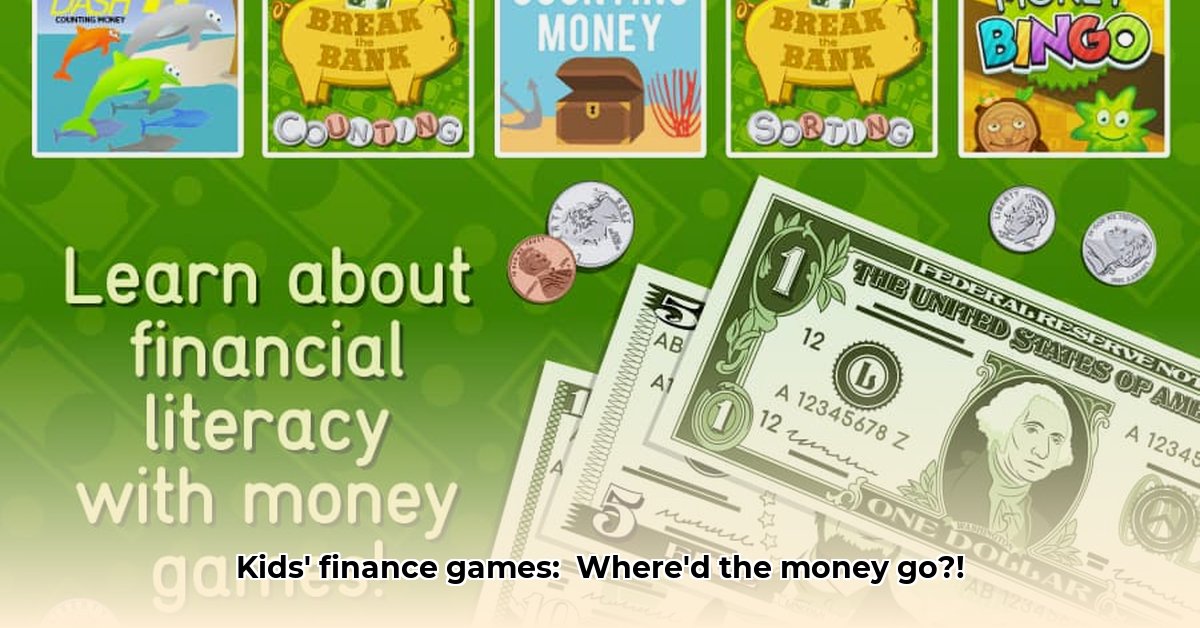
Break the Bank Sorting: A Missing Piece in Kids' Financial Education
A recent search for the educational game "Break the Bank Sorting" on popular platforms like ABCya and IXL yielded no results. This absence highlights a significant gap in the market for engaging, age-appropriate financial literacy games for children. This article explores the implications of this gap, examines potential reasons for its existence, and proposes actionable steps to address this critical need.
The Curious Case of the Missing Game
The inability to locate "Break the Bank Sorting" on widely used educational websites, such as ABCya and IXL, suggests a deeper issue. This isn't simply about one game; it points to a broader lack of readily available, high-quality financial literacy games for children. This deficit raises concerns about the preparedness of the next generation to manage their finances effectively. Why is this vital area of education underserved in the digital learning space?
Why This Matters: The Importance of Early Financial Literacy
Financial literacy is crucial for children's future well-being. It empowers them to make informed decisions about spending, saving, budgeting, and investing. Given the increasing complexity of the financial world, early education is essential. Engaging games can make learning financial concepts fun and accessible, fostering a positive attitude towards money management. The absence of games like "Break the Bank Sorting" hinders this crucial developmental process. How can we expect our children to navigate complex financial decisions without proper preparation?
Potential Reasons for the Absence: Uncovering the Gap
Several factors may contribute to the lack of suitable financial literacy games:
- Incomplete Development: The game may never have been fully completed and released to the public.
- Distribution Challenges: Development of effective and user-friendly educational games can be complex, leading to delays or difficulty with distribution to larger platforms.
- Low Initial Demand: The market for children's financial literacy games may have been underestimated initially, leading developers to prioritise other projects.
- Game Removal: The game may have existed and been subsequently removed for unforeseen reasons.
Whatever the reason, the consequent market gap represents a significant missed opportunity for financial education.
Who's Responsible? A Collaborative Call to Action
Addressing this gap requires a collaborative effort from various stakeholders:
Game Developers: Should prioritize the development of innovative, engaging financial literacy games suitable for different age groups. This involves researching market demand, incorporating proven educational methodologies, and ensuring games are accessible on major platforms.
Educational Platforms (e.g., ABCya, IXL): Should actively seek and incorporate high-quality financial literacy games into their offerings, implementing robust curation processes and improving search functionality to make these games easily discoverable. This would ensure greater visibility and accessibility of existing and newly developed games.
Educators: Should actively integrate age-appropriate financial literacy games into their lesson plans, utilizing them as supplementary learning tools and providing feedback to game developers to improve the educational impact of their products. This active engagement can enhance the learning experience for students.
Parents: Should actively search for and utilize available financial literacy games as part of a broader strategy to educate children about responsible money management, fostering open conversations about finances and reinforcing concepts learned through gameplay.
What's Next for Financial Literacy Games? Looking Ahead
The absence of "Break the Bank Sorting" highlights an urgent need. We can anticipate increased market demand for interactive, engaging financial literacy games, leading to innovation in game design and educational approaches. Gamification techniques, personalized learning pathways, and augmented reality features may become increasingly prevalent. The future of financial literacy games rests on collaboration and creative solution development.
Conclusion: Bridging the Gap for Future Financial Success
The missing "Break the Bank Sorting" game serves as a stark reminder of a critical educational gap. A collaborative effort is needed to develop, distribute, and integrate high-quality financial literacy games for children. This investment in early financial education will equip the next generation with the knowledge and skills necessary to succeed in an increasingly complex financial landscape. Let's work together to empower children with the tools they need to navigate their financial futures confidently.
[1] https://www.fitzsimonscu.com/financial-literacy-games-for-children-and-adults/ (Accessed: 2025-02-19) 🚫